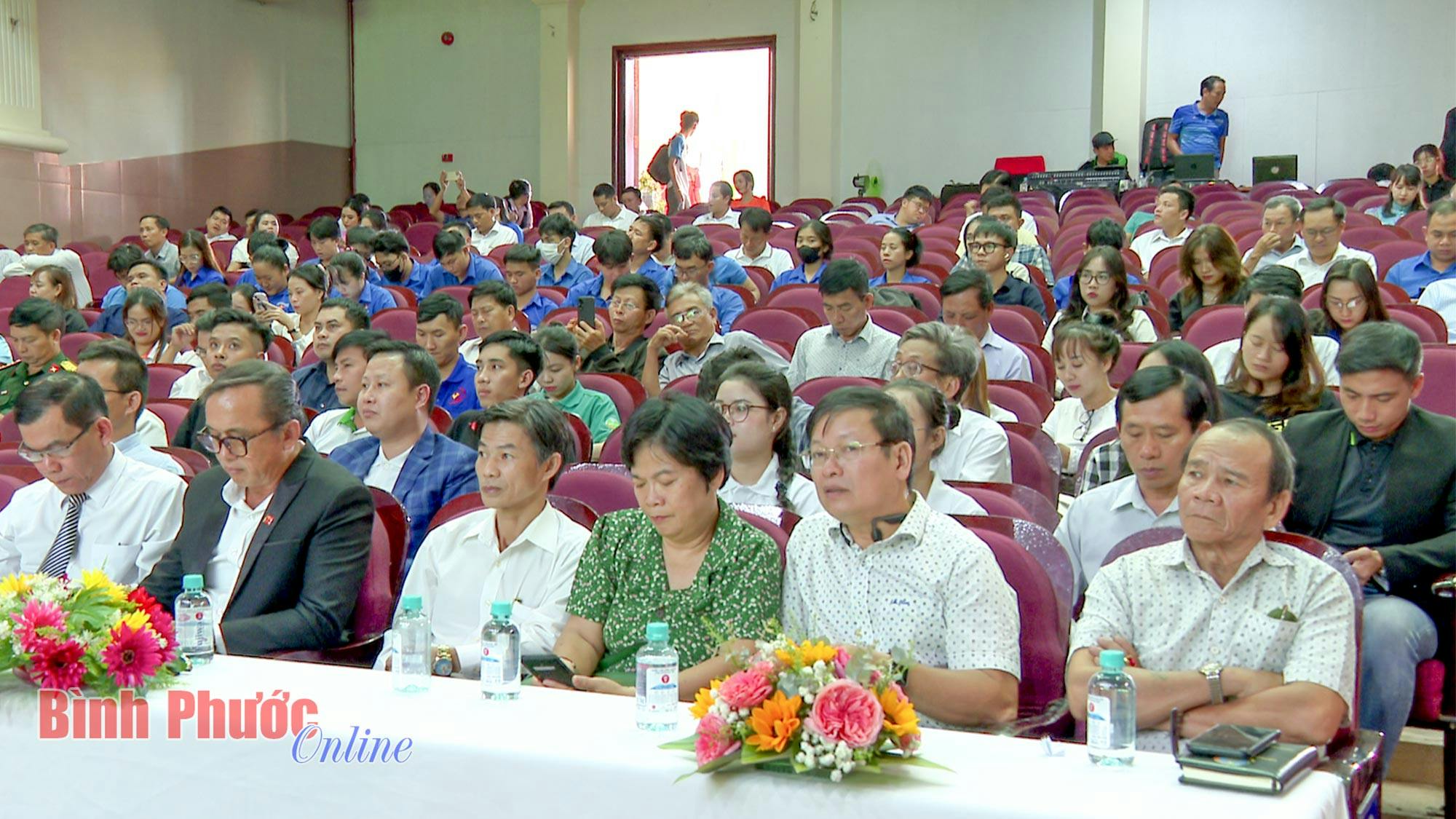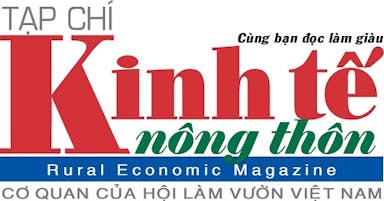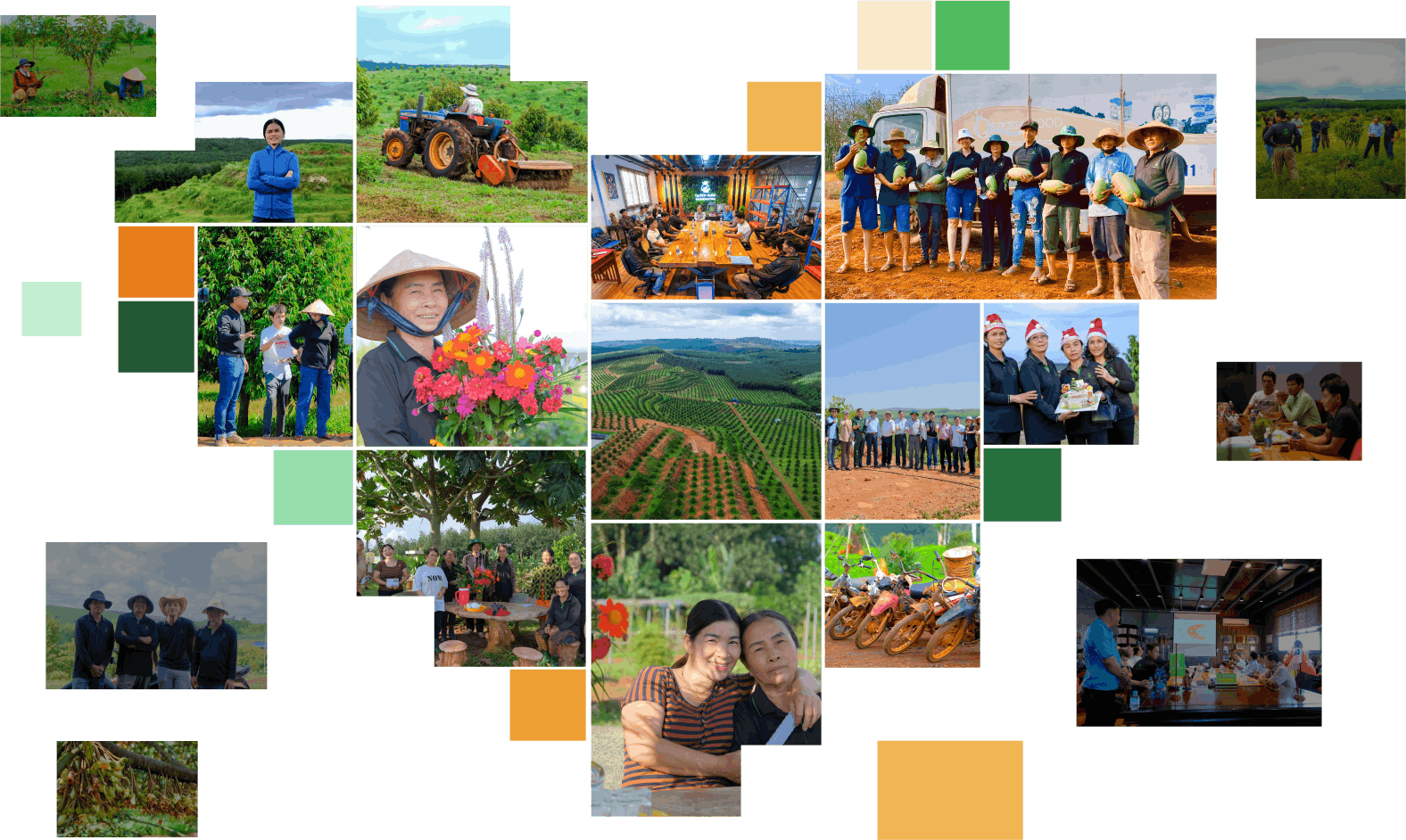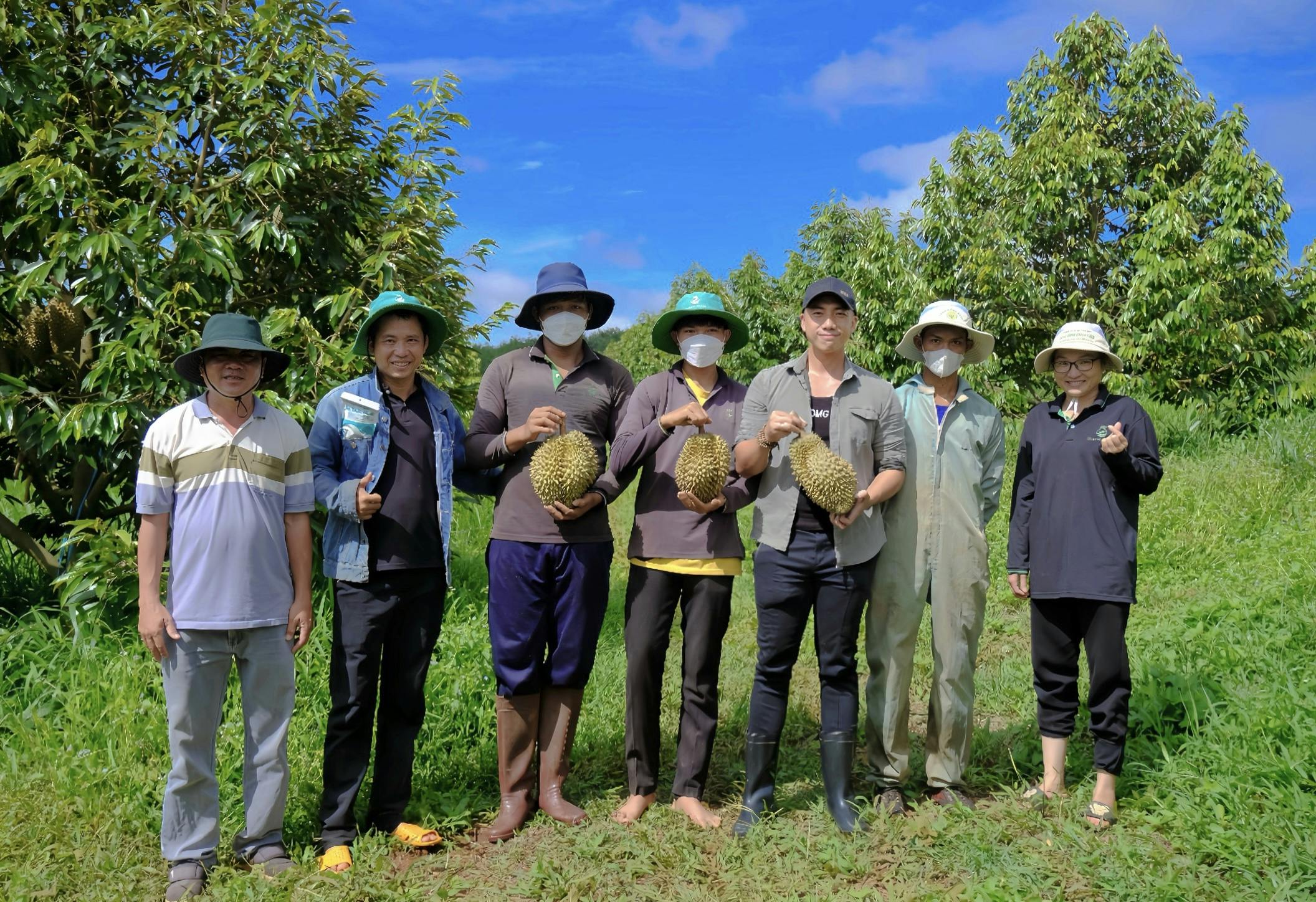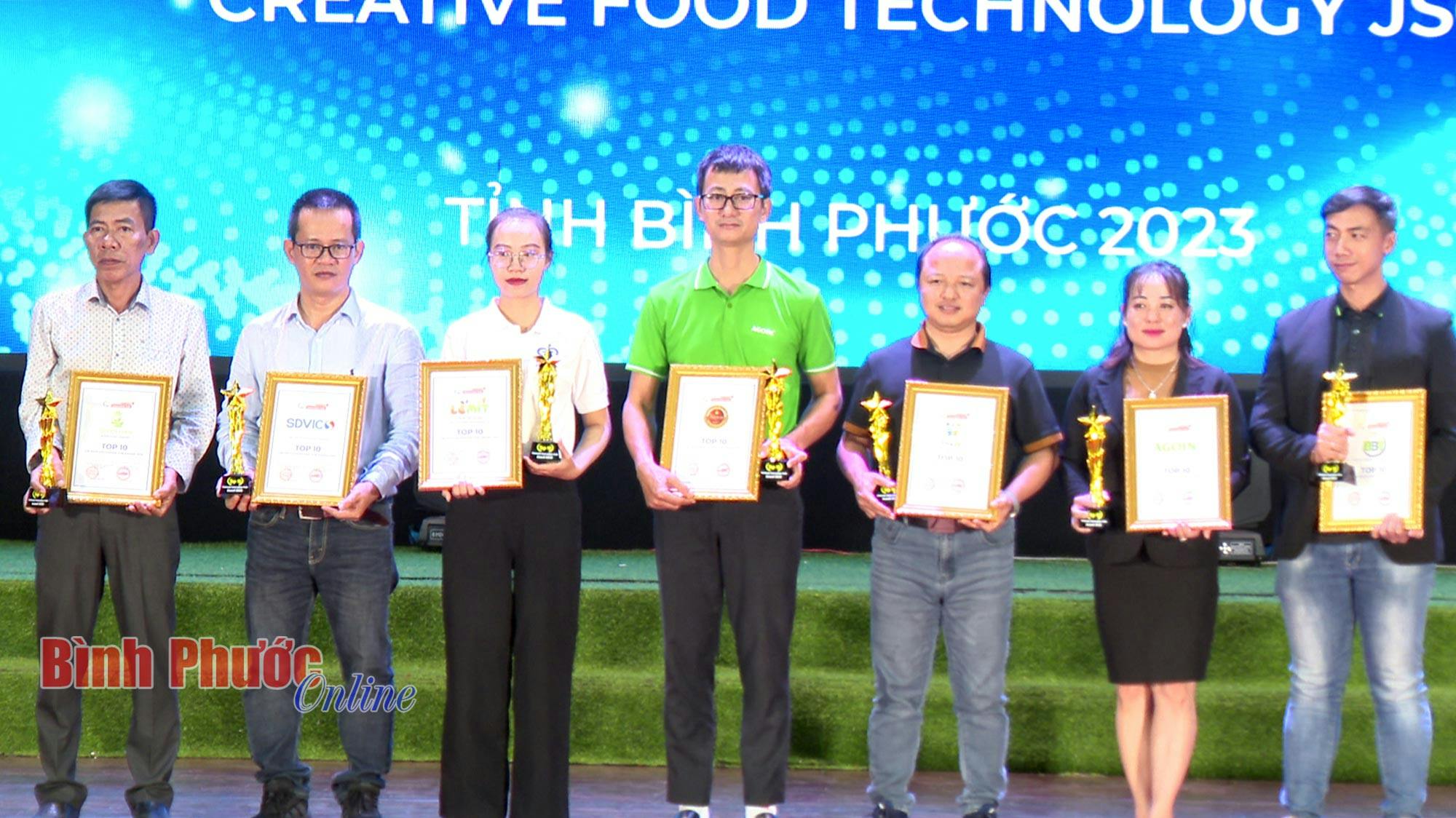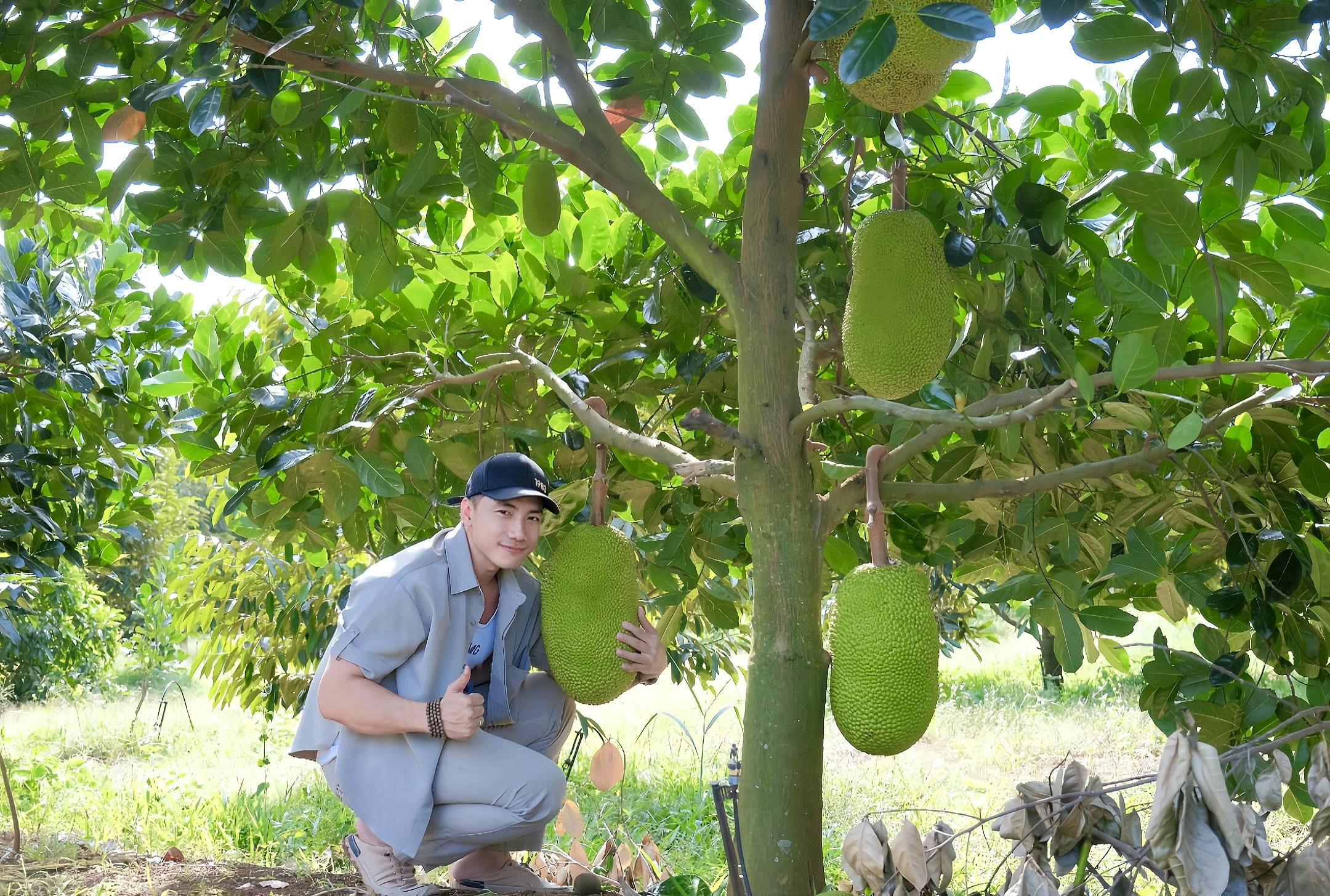

Young people return to the garden
Passing through the red soil of the Southeast region, we witnessed with our own eyes a durian garden mixed with forestry trees with more than 15,000 trees, planted according to the global farming standards (Global GAP) and applying high technology in Dang Ha commune, Bu Dang district (Binh Phuoc).
We were surprised when the durian trees were planted in straight rows, numbered to identify each lot, row and each tree planted by the young man Nguyen The Tung (born in 1983). All are managed by a scientific, clear farming process, with traceability of origin and specific hazards to each row and tree.
Start by taking care to improve the nutrition in the soil.
Recalling the reason for his affinity with agriculture, 5 years ago, Mr. Nguyen The Tung - a graduate of Master of Business Administration in the UK - never thought he would return to agriculture because he had no foundation in this industry. However, since 2019, he saw that his mother intended to make a living from agriculture, especially durian trees. Because he did not want his mother to suffer in her old age, he chose to join agriculture instead of her with his modern way of thinking. Standing on a piece of land covered in fertile green, few people know that Mr. Tung had previously spent a lot of effort in improving the nutrient system in the soil. According to Tung, the pH in the soil is one of the factors that help plants grow sustainably, the suitable pH for durian trees to absorb nutrients well must be from 5.5 to 6.0. Meanwhile, the starting pH of this land is originally only 4.1. If you cultivate and grow durian, the absorption of nutrients will certainly be very poor.
"The first thing I do is to re-measure what is lacking in the soil to supplement nutrients. In addition to the pH, I also check the toxicity related to the toxins from herbicides or pesticide residues, and the heavy metal content that can harm the health of the plants," Tung said.
Tung immediately started solving the remaining problem of raising the pH. Spend 6 - 9 months drying the soil, plowing, spreading lime, releasing toxins and starting to plow the soil into ridges to plant peanuts. Because according to Tung, peanuts have many nutrients that provide nitrogen and other minerals. After two rainy seasons, when taking samples to test the soil, the pH of the soil was 5.8, in the dry season the pH can reach 6.2.
"What is taken from the land must be returned to the land in the most grateful way" - that is the young man's agricultural perspective on his journey to farming. Besides, if you want good crops with high resistance, you must diligently take care of the soil well.
Ready for export
When asked about growing durian and then exporting it, Tung said: "Our country's agriculture is still cursed by being fragmented and small-scale, living on the fly, we often say that when the harvest is good, the price is low, when the price is good, the harvest is bad, each person does it in a different way, there is no uniformity in managing the quality of cultivation, so developing a large-scale economy is difficult". Therefore, Tung wants to be able to do what he loves and bring value, so he started working systematically from the beginning.
Tung's farm started planting durian in 2020. From the beginning, durian was grown according to Global GAP standards, so tracing the origin of the crop has become easier. In addition, Tung also believes that farming must have the responsibility of improving the environment, so he chooses farming standards that are in line with international standards.
In addition to durian, Tung also grows a variety of vegetation that is beneficial to the soil, preventing nutrient leaching on the surface layer. In addition, the young man is also interested in planting and preserving forestry trees that are both long-term and sustainable, wind-blocking and contributing to the conservation of groundwater in the future.
According to Tung, it is necessary to clearly understand the definition of organic and the orientation towards organic. If grown in a completely organic direction, it will be extremely difficult and costly. In general, it will be difficult to compete. Queen Farm aims to be a model for producing clean food and agricultural products, limiting the use of pesticides that can cause unsafety for workers and product users.
Currently, the garden uses Israeli smart irrigation technology, reducing labor, requiring only 1-2 people to operate a watering shift. The irrigation system is connected to a phone application, so it is easy to set the desired time.
Taking us to the reservoir, Tung said that the recent drought could be called history for Vietnamese agriculture. Not only in Binh Phuoc, but the drought lasted from the West, Southeast to the Central Highlands provinces. In recent years, farming has become difficult due to continuous salinity and drought. It can be seen that climate change is a risk factor that farmers need to seriously pay attention to in the following years.
According to Tung, during the rainy season, there is a relatively large amount of water, but we have not proactively stored water resources, instead we are passive in exploiting water, especially mainly exploiting deep water layers, which is unsustainable. For Queen Farm, Tung does not plan to exploit underground water from wells but is determined to exploit surface water during the rainy season through streams.
Four years ago, Tung simply thought that the garden needed a water storage tank, because he thought that the Southeast and Central Highlands regions were at risk of drought. "I started building a water storage tank that could meet the water demand for 5 months if a drought occurred. Recently, the drought lasted for 6 months and 9 days. Thanks to proactive preparation, the farm still overcame the great drought," Tung shared.
Currently, the farm is creating jobs for 15 workers, mainly ethnic minorities, with an income of 8 - 15 million VND per month.
